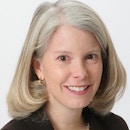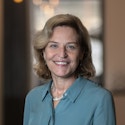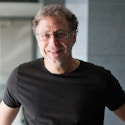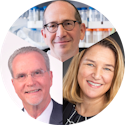By clicking to watch this video, you agree to our privacy policy.
On 6 November 2013, Amanda Woodward discussed the origins of children’s social understanding and how this fundamental aspect of cognition has profound implications for early childhood development. Her talk was part of the Simons Foundation Autism Research lecture series.
Kevin Pelphrey provided post-lecture commentary on how our growing understanding of the origins of children’s social cognition can inform the search for early diagnostic indicators of autism.
You can watch a complete video recording of the event above. Use the comments section below to discuss the lecture and pose follow-up questions.
About the Lecture
Growing evidence shows that in typical development, the ability to carry out actions according to intentions emerges during infancy. Studies over the past few years have shown that this ability develops and changes rapidly during infancy. An infant’s active engagement with the physical and social world is critical for acquiring social skills.
About the commentator:
Kevin Pelphrey is Harris Professor at the Yale Child Study Center and director of the Center for Translational Developmental Neuroscience and the Yale Center for Excellence in Autism Research and Treatment. As a SFARI Investigator, his research focuses on the application of cognitive neuroscience and genetics techniques to understanding the systems biology of neurodevelopmental disorders.




